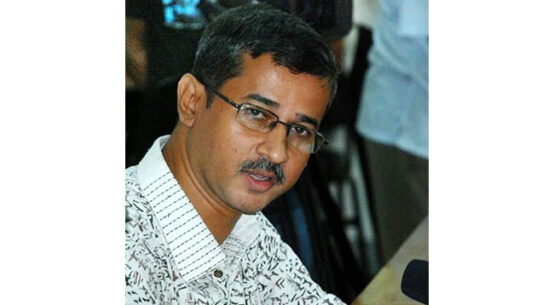The Department of Law at North South University (NSU), in collaboration with the Abul Mansur Ahmad Smriti Parishad, organised a seminar titled “Contextualising Abul Mansur Ahmad: The Genesis and Evolution of Constitutional Aspirations in Bangladesh” on Tuesday.
Advocate Arif Khan, Assistant Attorney General, delivered the keynote speech. Researcher and journalist Dr. Kazal Rashid Shahin, poet and journalist Mr. Emran Mahfuz, and Senior Lecturer of NSU Mr. Md. Lokman Hussain were present at the seminar as discussants, while Professor Md. Rizwanul Islam, Professor, NSU, delivered the concluding speech.
The seminar focused on the influence of Abul Mansur Ahmad on Bangladesh’s democratic and constitutional journey. In his keynote speech, Advocate Arif Khan remarked that the Constitution of Bangladesh has a rich history behind its enactment owing to the intellectual contributions of the likes of Abul Mansur Ahmad.
Mr. Emran Mahfuz pointed out that the intellectuals of Bangladesh have failed to live up to the standards of Abul Mansur Ahmad as they have been unable to make the people understand the true democratic spirit.
While talking about Abul Mansur Ahmad’s influence on Bangladesh’s Constitution and democracy, Dr. Kazal Rashid Shahin noted that despite all its strengths, the Constitution of Bangladesh failed to prevent fascism.
Mr. Md. Lokman Hussain discussed how Abul Mansur Ahmed was one the most vocal critics of the 1972 Constitution and consistently argued for a democratic constitution rather than a mere constitutional democracy.
Professor Rizwanul Islam noted that a reader can understand the nature of politics in Bangladesh simply by reading Abul Mansur Ahmad’s classic satires. He also remarked that one ought to do only what one has a mandate to do, and only an elected assembly has the mandate to change the Constitution.
The panelists also urged the attendees to read Abul Mansur Ahmed’s work. The students present in the seminar criticized different provisions and principles of the Constitution and expressed the need for reforms.

